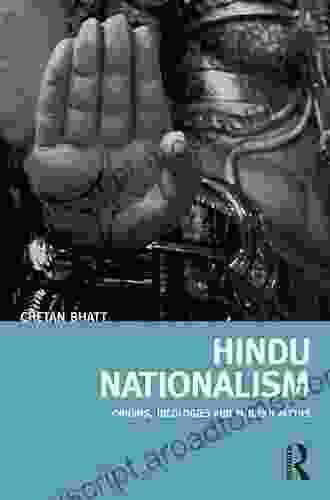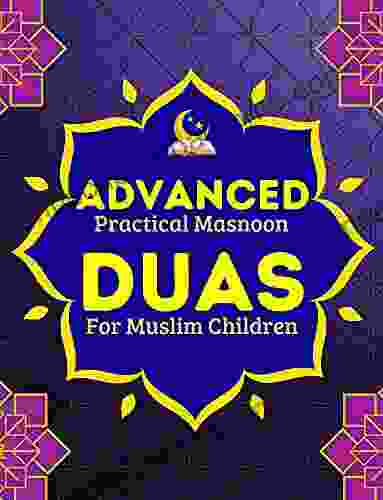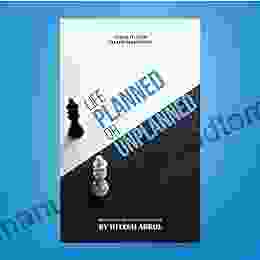Hindu Nationalism: Origins, Ideologies, and Modern Myths

Hindu nationalism, a multifaceted and influential political and social movement, has played a pivotal role in shaping the destiny of South Asia. Its origins lie deep within the historical, cultural, and religious tapestry of India, with its ideologies and modern myths evolving over time. This article aims to provide a comprehensive understanding of Hindu nationalism, tracing its genesis, examining its core beliefs, and unraveling the myths that have surrounded it.
Historical Origins: The Seeds of Nationalism
The roots of Hindu nationalism can be traced back to the late 19th century, a period marked by significant social and political changes in India. The British Raj, with its divide-and-rule policies, inadvertently sowed the seeds of religious and cultural identity among the Hindu population.
4.3 out of 5
| Language | : | English |
| File size | : | 5260 KB |
| Screen Reader | : | Supported |
| Print length | : | 240 pages |
| X-Ray for textbooks | : | Enabled |
Hindu revivalist organizations, such as the Arya Samaj and the Hindu Mahasabha, emerged during this time, advocating for the revival of Hindu pride, social reform, and the rejection of foreign influences. These organizations played a crucial role in fostering a sense of Hindu unity and laying the ideological foundation for future nationalist movements.
Ideological Pillars: Dharma, Rashtra, and Hindutva
At the core of Hindu nationalism lies a trinity of concepts: Dharma, Rashtra, and Hindutva. Dharma, the concept of righteous conduct and duty, provides the moral compass for Hindu nationalists. Rashtra, the nation, is seen as the territorial embodiment of Hindu civilization, while Hindutva, Hindu-ness, is the cultural and religious identity that binds the Hindu community together.
Hindu nationalists believe that India is a uniquely Hindu nation, where the Hindu faith and culture have shaped every aspect of society. They advocate for the protection and preservation of Hindu values, traditions, and institutions within the framework of a modern, democratic state.
Modern Myths: Shaping the Narrative
Hindu nationalism has been accompanied by the creation and propagation of modern myths that have further shaped its ideology and appeal. These myths often draw upon historical events and religious texts, but they are often distorted or exaggerated to serve the political agenda of the movement.
One such myth is the belief that India was once a glorious Hindu empire that was destroyed by Muslim invaders. Hindu nationalists use this myth to evoke a sense of victimhood and justify their demands for Hindu supremacy.
Another myth is the idea that Hindus are under threat from other religious communities, particularly Muslims and Christians. This fear-mongering tactic has been used to mobilize Hindu support and justify policies that discriminate against minorities.
Political Manifestations: From Hindutva to the BJP
Hindu nationalism has found political expression through various organizations and parties over the years. The Hindu Mahasabha, founded in 1915, was one of the earliest political organizations to embrace Hindu nationalist ideology. In the post-independence era, the Bharatiya Janata Party (BJP) emerged as the dominant Hindu nationalist party, rising to power in 1998.
The BJP has pursued a pro-Hindu agenda that includes the promotion of Hindu symbols and rituals, the enactment of laws against religious conversions, and the revision of history textbooks to reflect a more Hindu-centric narrative. These policies have been met with both support and criticism, highlighting the ongoing debates surrounding Hindu nationalism.
Impact on Indian Society: A Complex Legacy
The impact of Hindu nationalism on Indian society has been multifaceted and often controversial. On the one hand, it has led to the resurgence of Hindu pride and a renewed interest in traditional values. It has also played a role in mobilizing Hindus against perceived threats to their religion and culture.
On the other hand, Hindu nationalism has been criticized for its divisive rhetoric, its targeting of minorities, and its erosion of secular values enshrined in the Indian constitution. The rise of Hindu nationalism has raised concerns about the future of religious tolerance and pluralism in India.
: Unraveling the Complexities
Hindu nationalism is a complex and multifaceted phenomenon that has shaped the political and social landscape of South Asia. Its origins can be traced back to the late 19th century, with its ideologies and modern myths evolving over time. While it has played a role in fostering Hindu pride and mobilizing Hindus, it has also raised concerns about religious intolerance and the erosion of secular values. As India continues to grapple with the challenges of balancing Hindu identity and national unity, the ongoing debates surrounding Hindu nationalism will likely continue to shape its future.
4.3 out of 5
| Language | : | English |
| File size | : | 5260 KB |
| Screen Reader | : | Supported |
| Print length | : | 240 pages |
| X-Ray for textbooks | : | Enabled |
Do you want to contribute by writing guest posts on this blog?
Please contact us and send us a resume of previous articles that you have written.
 Book
Book Novel
Novel Page
Page Chapter
Chapter Text
Text Story
Story Genre
Genre Reader
Reader Library
Library Paperback
Paperback E-book
E-book Magazine
Magazine Newspaper
Newspaper Paragraph
Paragraph Sentence
Sentence Bookmark
Bookmark Shelf
Shelf Glossary
Glossary Bibliography
Bibliography Foreword
Foreword Preface
Preface Synopsis
Synopsis Annotation
Annotation Footnote
Footnote Manuscript
Manuscript Scroll
Scroll Codex
Codex Tome
Tome Bestseller
Bestseller Classics
Classics Library card
Library card Narrative
Narrative Biography
Biography Autobiography
Autobiography Memoir
Memoir Reference
Reference Encyclopedia
Encyclopedia Paul Basden
Paul Basden Charles G Gross
Charles G Gross George M Hornberger
George M Hornberger Cecelia Tichi
Cecelia Tichi Matthew Ralph
Matthew Ralph Clorinda Matto De Turner
Clorinda Matto De Turner Nathan Jurgenson
Nathan Jurgenson Chris Lauer
Chris Lauer Mercy Morgana
Mercy Morgana Charles Harvey
Charles Harvey Jason Mankey
Jason Mankey Gareth Malone
Gareth Malone Chris Charlesworth
Chris Charlesworth Frank Stern
Frank Stern Vincent P O Hara
Vincent P O Hara Jennifer Heard
Jennifer Heard Tia Powell
Tia Powell Christian Tripodi
Christian Tripodi Cecilia Barton
Cecilia Barton Greyson Mann
Greyson Mann
Light bulbAdvertise smarter! Our strategic ad space ensures maximum exposure. Reserve your spot today!
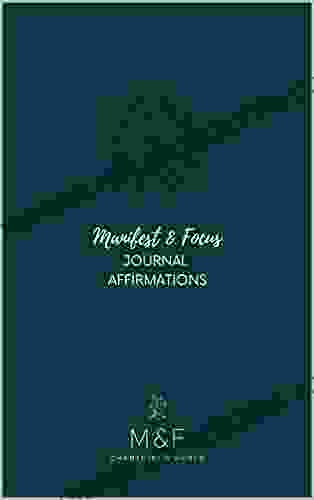
 Angelo WardManifest Focus Journal Affirmations: The Ultimate Guide to Self-Empowerment...
Angelo WardManifest Focus Journal Affirmations: The Ultimate Guide to Self-Empowerment... Sam CarterFollow ·17k
Sam CarterFollow ·17k Herman MitchellFollow ·5.6k
Herman MitchellFollow ·5.6k Ibrahim BlairFollow ·13.2k
Ibrahim BlairFollow ·13.2k Chad PriceFollow ·3.9k
Chad PriceFollow ·3.9k Cole PowellFollow ·13.8k
Cole PowellFollow ·13.8k Gordon CoxFollow ·3.2k
Gordon CoxFollow ·3.2k Deion SimmonsFollow ·13.4k
Deion SimmonsFollow ·13.4k Jules VerneFollow ·18.2k
Jules VerneFollow ·18.2k
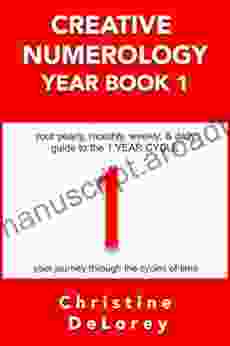
 Esteban Cox
Esteban CoxYour Yearly Monthly Weekly Daily Guide To The Year Cycle:...
As we navigate the ever-changing currents...
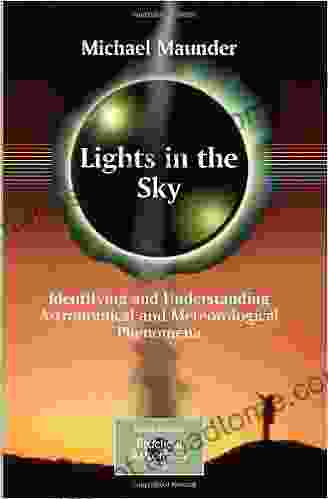
 George Orwell
George OrwellIdentifying and Understanding Astronomical and...
Prepare to embark on an extraordinary...

 Arthur Conan Doyle
Arthur Conan DoyleYour Yearly Monthly Weekly Daily Guide to the Year Cycle:...
Welcome to "Your Yearly Monthly Weekly Daily...
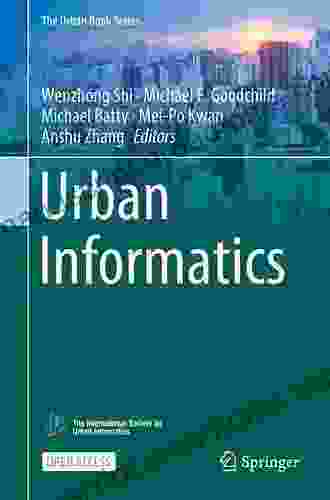
 Steve Carter
Steve CarterUrban Informatics: Unlocking the Secrets of Smart Cities...
An In-Depth Exploration of Urban...
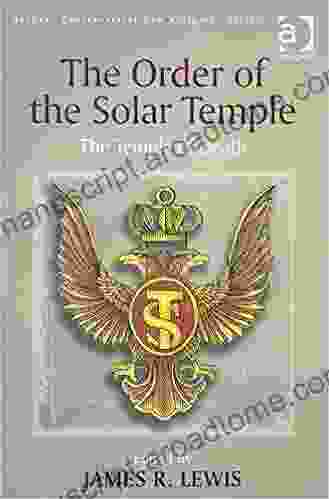
 Henry Hayes
Henry HayesUnveil the Secrets of the Order of the Solar Temple: A...
In the realm of secret...
4.3 out of 5
| Language | : | English |
| File size | : | 5260 KB |
| Screen Reader | : | Supported |
| Print length | : | 240 pages |
| X-Ray for textbooks | : | Enabled |


